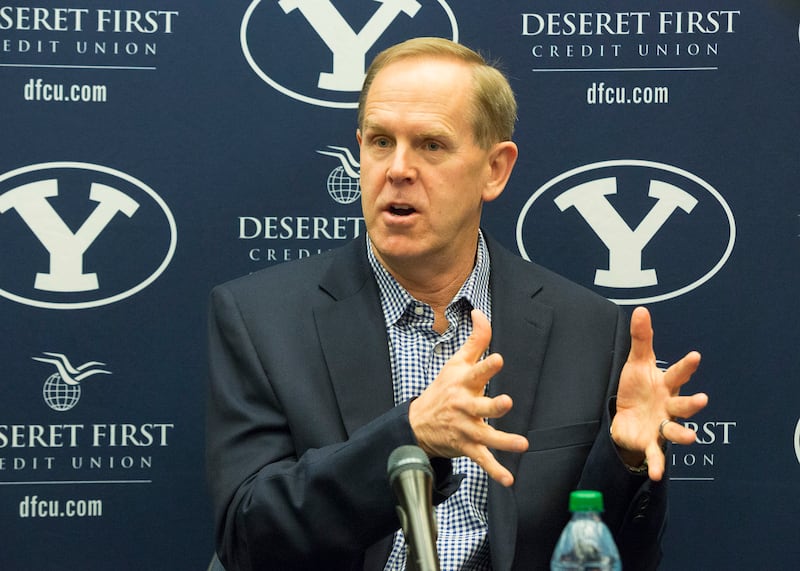
One year after Brigham Young University (BYU) eagerly accepted an invitation to join the Big 12 Conference, reflections within the university community suggest a complex array of sentiments, ranging from optimism to regret.
In August 2023, BYU made headlines across collegiate sports by accepting an invitation to join the prestigious Big 12 Conference, marking a significant shift in its athletic program’s trajectory. The decision was celebrated as a milestone achievement, promising increased exposure, competitive opportunities, and financial benefits for the university and its athletic programs.
Fast forward one year, and the mood at BYU appears to be more introspective. While the initial enthusiasm over joining a Power Five conference brought hopes of enhanced visibility and increased revenue streams, the reality of navigating the competitive landscape has proven more challenging than anticipated.
Athletic Director Tom Holmoe, a key architect behind BYU’s move to the Big 12, acknowledged the complexities inherent in the transition. “Joining the Big 12 was a strategic decision aimed at elevating our athletics program to new heights,” Holmoe stated. “However, like any significant change, it comes with its share of challenges and adjustments.”
One of the primary challenges BYU has faced is the competitive disparity within the conference. Unlike its previous conference affiliations, where it often dominated or contended strongly, BYU has found itself competing against larger, more established programs with deeper resources and recruiting capabilities. This shift has necessitated a reassessment of expectations and timelines for achieving competitive parity.
Financially, while joining the Big 12 was expected to bring substantial revenue increases through television contracts and conference distributions, the initial returns have been more modest than initially projected. This has prompted discussions within the university administration about the long-term financial sustainability of sustaining competitive excellence while maintaining fiscal responsibility.
Moreover, the cultural fit within the Big 12 remains a topic of discussion among BYU supporters and stakeholders. As a private university with a distinct religious affiliation, BYU’s values and principles sometimes contrast with those of its secular counterparts in the conference. Navigating these differences while striving for competitive success has added another layer of complexity to the university’s athletic endeavors.
Looking ahead, BYU remains committed to its partnership with the Big 12 and is actively working to address the challenges it faces. “We entered the Big 12 with a clear vision and strategic goals,” Holmoe affirmed. “While the road may be tougher than anticipated, we are dedicated to building a sustainable future for BYU athletics within this competitive landscape.”
As BYU marks one year since its landmark decision to join the Big 12 Conference, the university stands at a pivotal juncture, balancing aspirations of athletic prowess with the realities of operational challenges. The coming years will undoubtedly shape the narrative of BYU’s place within collegiate athletics, as it continues to navigate the ever-evolving landscape of competitive sports.
In conclusion, BYU’s reflection on its first year in the Big 12 reflects a nuanced perspective encompassing both optimism and a sober assessment of the challenges ahead. As the university charts its course forward, stakeholders remain hopeful that strategic adjustments and continued dedication will ultimately yield the desired outcomes for BYU athletics.

Leave a Reply